Maria Monzon
Computer Vision and AI researcher
ETH Zurich
Friedrich-Alexander University of Erlangen-Nuremberg (FAU)
About me
Maria Monzon is PhD candidate at ETH working in the intersection of data science, neuroimaging and neurology. Previously, she worked as Computer Vision Researcher on Advance Image Analysis Group at BASF. Her aim is to develop robust and trustworthy Deep Learning algorithms for solving computer vision problems in Bioscience.
She was granted a study scholarship for graduating with honors in highschool. She received his B.Sc. in Telecommunication Technology Engineering from the Basque Country University (UPV-EHU), including one semester abroad in Germany with the help of an Erasmus scholarship. She completed her bachelor thesis at BioRes group with excellent grade. In parallel, she attended a micro-master in Formation and Entrepreneurship in Biomedical Engineering (UPV-EHU).
Right after, she moved to Germany to pursue an M.Sc. in Biomedical Engineering at Friedrich-Alexander University Erlangen-Nürnberg (FAU) in data and image processing major. During her studies, Maria worked on multiple university-related and personal research projects in the areas of Deep Learning for Computer Vision and Biomedical Image and Signal analysis. She completed her master thesis at Siemens Healthineers, where she worked with PD. Dr. Daniel Giese and Prof. Andreas Maier on developing novel deep learning algorithms assessment of cardiac valve motion on time-resolved Magnetic Resonance Images. After her master, Maria did an Erasmus+ internship at Bitbrain Technologies, where she developed machine learning algorithms for decoding grasping action from EEG brain signals. Since then, Maria has worked as a research engineer at BASF R&D, where she developed state-of-the-art deep learning algorithms to solve Computational Life Science Problems. For more informatin on her research experience see Experience & Projects
Her current research interests include Computer Vision, Biomedical Image Analysis, Trustworhty Deep Learning and Machine Learning for Healthcare. I care about efficient coding and reproducible research.
- Computer Vision
- Biomedical Image Analysis
- Trustworhty Deep Learning
- Machine Learning for Healthcare
- Explainable Artificial Intelligence
-
M.Sc. Biomedical Engineering, 2021
Friedrich-Alexander-Universität Erlangen-Nürnberg (FAU)
-
Micromaster in Formation and Entrepreneurship in Biomedical Engineeering, 2018
Basque Country University (EHU-UPV)
-
B.Sc. Telecommunication Engineering, 2017
Basque Country University (EHU-UPV)
Skills
90%
95%
90%
90%
80%
80%
Selected Publications
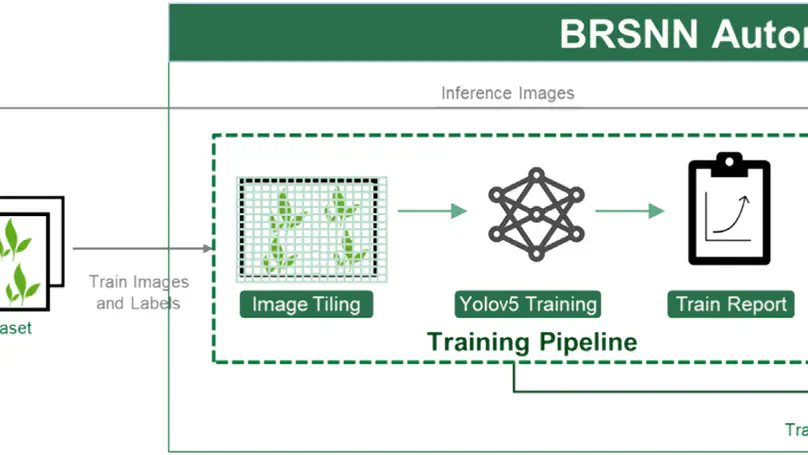
A multistage deep learning-based solution was developed to automate the estimation of flea beetle damage in oilseed rape plants, improving efficiency and accuracy in field assessments.
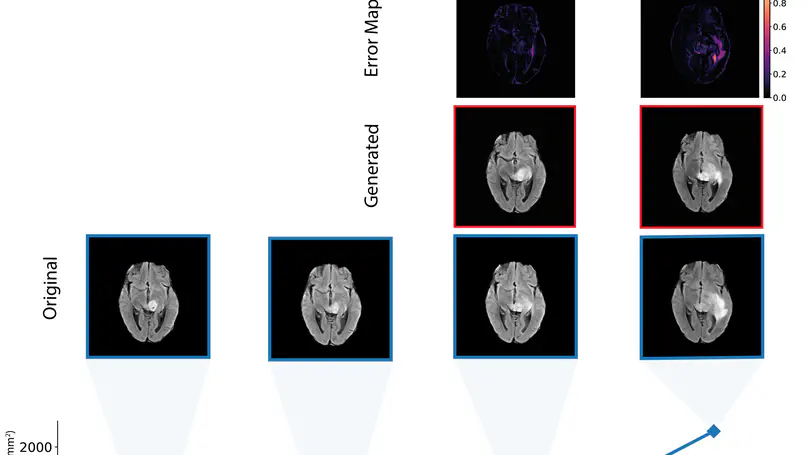
Pediatric diffuse midline glioma (DMG) has a poor prognosis with radiotherapy as the standard of palliative care. Radiation strategies using individual geometric doseshaping have the potential to maximize patient benefit. This study aimed to establish a proof-of-principle to generate clinically relevant anatomical representations of the progression of pediatric DMG magnetic resonance image (MRI) slices through denoising diffusion implicit models (DDIM). Based on the BraTS23 data, we analyzed the generation of MRIs with enlarged tumor sizes starting from a baseline scan. Models were pre-trained on adult glioblastoma (GBM) prior to transfer learning on pediatric high-grade glioma. Test set performance was evaluated using the Frechet Inception Distance (FID), and Structural Similarity Index (SSIM). Qualitative evaluation involved visual classification of real vs generated images by two independent radiology trainees. The optimized network was tested to forecast anatomical tumor growth in five DMG patients from an independent dataset comprising longitudinal T2-FLAIR images. We obtain high-fidelity generated images, supported by an FID of 12.4 and 0.8 SSIM on the adult test set. Despite the smaller pediatric BraTS dataset yielding a 34.8 FID and 0.84 SSIM, human observers failed to distinguish generated from real MRIs (mean recall and precision of 0.51). The generated anatomical predictions also closely resemble the observed longitudinal tumor progression in the pediatric DMG subset. Notably, the direction and extent of tumor growth align while the surrounding brain anatomy is preserved. Quantitatively, the mean DICE score between segmentations of generated and real tumors was 0.8. Our model produces high-quality images that conform to growth patterns of pediatric DMGs. Further quantitative validation on larger longitudinal datasets is required to ensure the method’s robustness. The proposed method enables a personalized approach for defining target regions in radiation therapy which could translate to improved clinical outcomes.
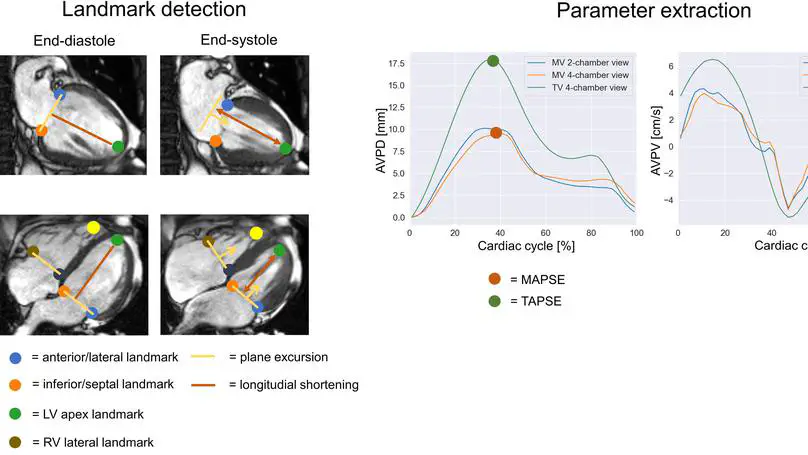
To automatically extract the valve-related motion parameters, the proposed AI-based system was developed and analysed on a large dataset. We investigated the robustness and feasibility of the system extensively on MV and TV related motion parameters. The system achieved human-level accuracy and can improve the workflow efficiency, automation and standardization of valve-related acquisitions or analyses.
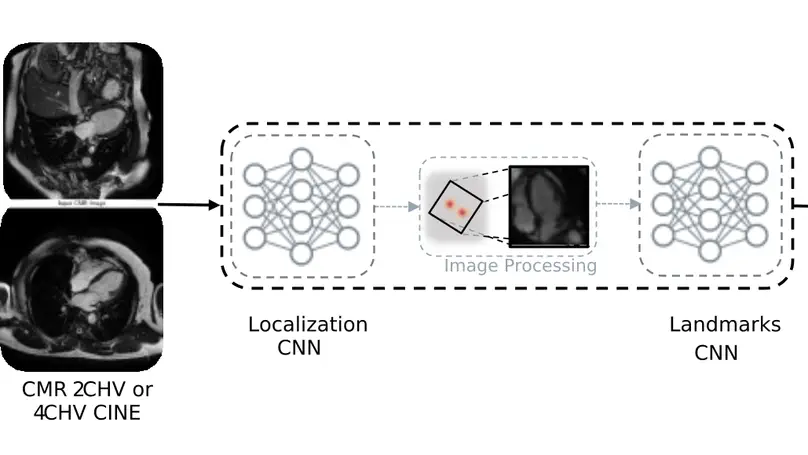
The analysis of mitral valve motion is known to be relevant in the diagnosis of cardiac dysfunction. Dynamic motion parameters can be extracted from Cardiac Magnetic Resonance (CMR) images. We propose two chained Convolutional Neural Networks for automatic tracking of mitral valve-annulus landmarks on time-resolved 2-chamber and 4-chamber CMR images. The first network is trained to detect the region of interest and the second to track the landmarks along the cardiac cycle. We successfully extracted several motion-related parameters with high accuracy as well as analyzed unlabeled datasets, thereby overcoming time-consuming annotation and allowing statistical analysis over large number of datasets
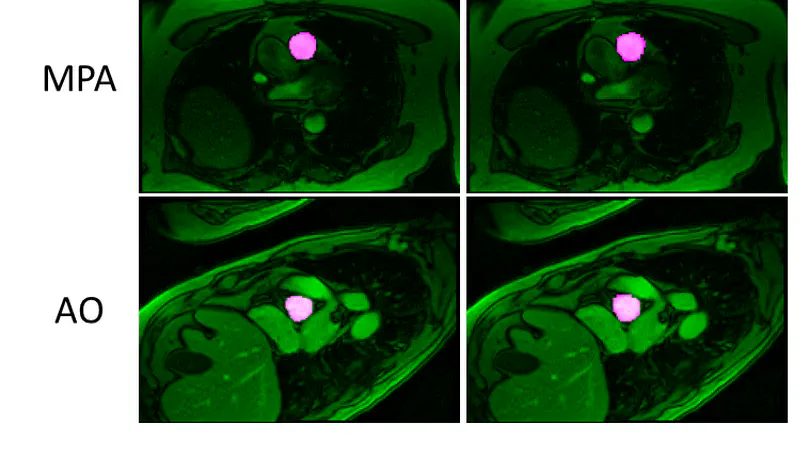
Phase-contrast (PC) MRI is used to evaluate blood hemodynamics; however, it can be time consuming to process PC-MR data. In this work, we developed a fully automated segmentation algorithm for PC MR images using deep learning (DL). Automated segmentation of aorta and main pulmonary artery from PC MRI scans can be successfully achieved using the DL model







